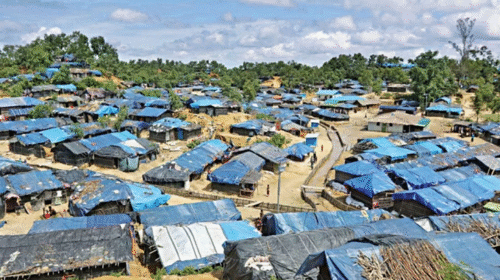Cox’s Bazar correspondent: Fishermen of Cox’s Bazar are getting the benefit of the ban on fishing in the sea. Compared to last year, double Hilsa has arrived at Cox’s Bazar Fish Landing Center this year. Those concerned said that more than 300 metric tons of hilsa along with other fish have arrived in Cox’s Bazar in the last one week. However, due to non-modernization of the landing center, many fish are being wasted.
At 11 o’clock on Tuesday (November 8), hundreds of fishing trawlers were seen anchored in the Bankkhali River near the Cox’s Bazar Fish Landing Centre. Next to these trawlers are numerous small dinghy boats. Hundreds of hilsa are being unloaded from large trawlers to dinghies. The dinghies are rushing to the ghat with these hilsa. And one basket full of hilsa is being unloaded at the fish landing center.
Shafiq, the fisherman of FB Chaida trawler, said that he went to the sea and threw the net for seven days. A flock of hilsa has been caught by throwing nets. I came to the landing center with about 4,000 hilsa to sell. Now I will quickly sell these hilsa and go fishing in the sea again with the goods on the trawler.
Osman Gani Tulu, President of Cox’s Bazar Landing Center Fishermen’s Union Co-operative Society Limited, said, “50 to 60 trawlers are coming to the wharf of the landing center every day after fishing in the sea. But the jetty is unable to land the fish. Many spend extra money and flock to the wharf with fish in small boats from big trawlers. And there are not enough turnstiles at the landing center. Because of this, there is no place to keep fish. Many times the fish is wasted. If the landing center is modernized and jetties and turnstiles are extended, everyone will benefit.”
Manager of Cox’s Bazar Fish Landing Center. Badruddouja said that more than 350 metric tons of marine fish arrived at the landing center in a week after the end of the 22-day government ban. Out of this only hilsa is more than 300 metric tons. The amount of fish landed at this time last year has doubled this year. This means that due to the government ban, the production of fish in the sea has increased, the benefits of which are now being shared by everyone from fishermen.



















